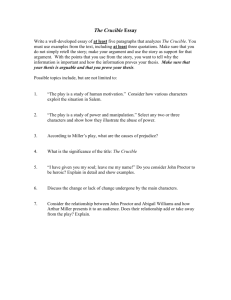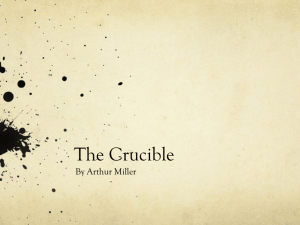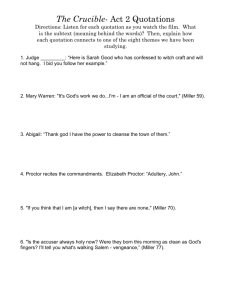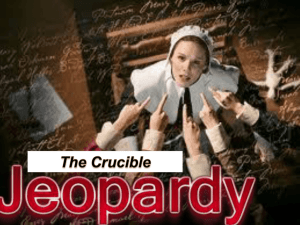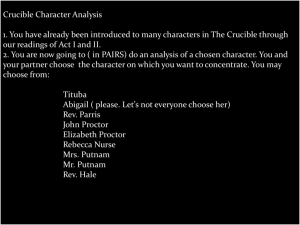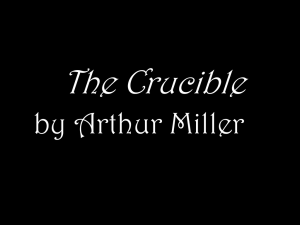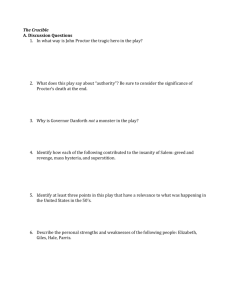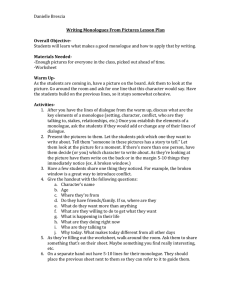brooks atkinson review of play
advertisement
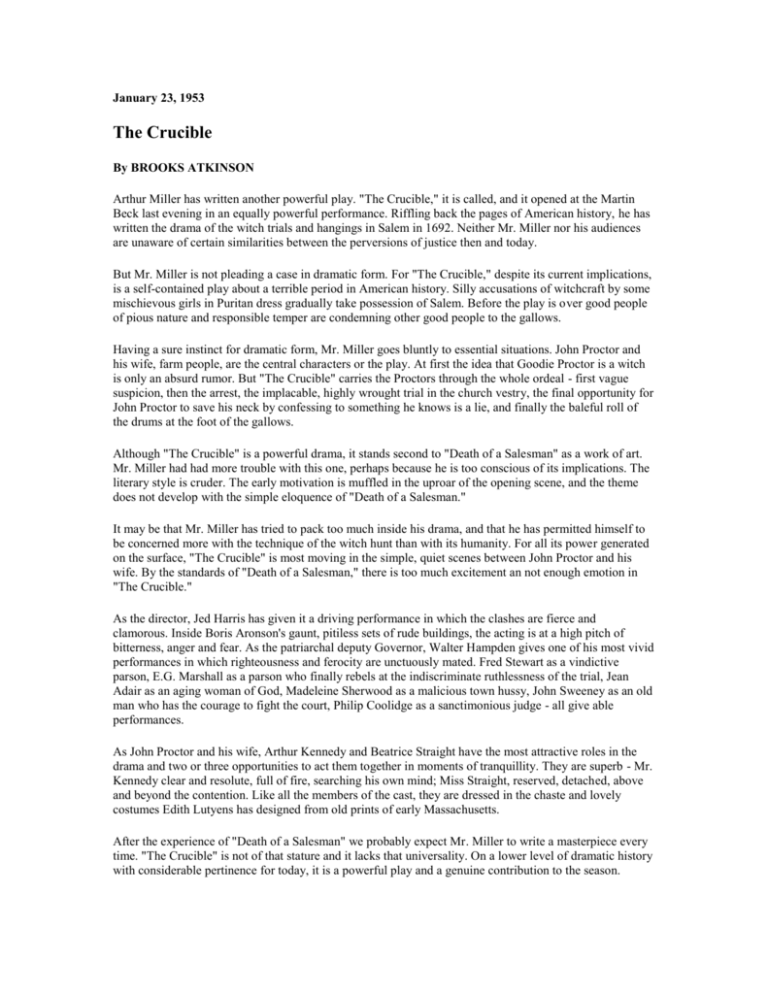
January 23, 1953 The Crucible By BROOKS ATKINSON Arthur Miller has written another powerful play. "The Crucible," it is called, and it opened at the Martin Beck last evening in an equally powerful performance. Riffling back the pages of American history, he has written the drama of the witch trials and hangings in Salem in 1692. Neither Mr. Miller nor his audiences are unaware of certain similarities between the perversions of justice then and today. But Mr. Miller is not pleading a case in dramatic form. For "The Crucible," despite its current implications, is a self-contained play about a terrible period in American history. Silly accusations of witchcraft by some mischievous girls in Puritan dress gradually take possession of Salem. Before the play is over good people of pious nature and responsible temper are condemning other good people to the gallows. Having a sure instinct for dramatic form, Mr. Miller goes bluntly to essential situations. John Proctor and his wife, farm people, are the central characters or the play. At first the idea that Goodie Proctor is a witch is only an absurd rumor. But "The Crucible" carries the Proctors through the whole ordeal - first vague suspicion, then the arrest, the implacable, highly wrought trial in the church vestry, the final opportunity for John Proctor to save his neck by confessing to something he knows is a lie, and finally the baleful roll of the drums at the foot of the gallows. Although "The Crucible" is a powerful drama, it stands second to "Death of a Salesman" as a work of art. Mr. Miller had had more trouble with this one, perhaps because he is too conscious of its implications. The literary style is cruder. The early motivation is muffled in the uproar of the opening scene, and the theme does not develop with the simple eloquence of "Death of a Salesman." It may be that Mr. Miller has tried to pack too much inside his drama, and that he has permitted himself to be concerned more with the technique of the witch hunt than with its humanity. For all its power generated on the surface, "The Crucible" is most moving in the simple, quiet scenes between John Proctor and his wife. By the standards of "Death of a Salesman," there is too much excitement an not enough emotion in "The Crucible." As the director, Jed Harris has given it a driving performance in which the clashes are fierce and clamorous. Inside Boris Aronson's gaunt, pitiless sets of rude buildings, the acting is at a high pitch of bitterness, anger and fear. As the patriarchal deputy Governor, Walter Hampden gives one of his most vivid performances in which righteousness and ferocity are unctuously mated. Fred Stewart as a vindictive parson, E.G. Marshall as a parson who finally rebels at the indiscriminate ruthlessness of the trial, Jean Adair as an aging woman of God, Madeleine Sherwood as a malicious town hussy, John Sweeney as an old man who has the courage to fight the court, Philip Coolidge as a sanctimonious judge - all give able performances. As John Proctor and his wife, Arthur Kennedy and Beatrice Straight have the most attractive roles in the drama and two or three opportunities to act them together in moments of tranquillity. They are superb - Mr. Kennedy clear and resolute, full of fire, searching his own mind; Miss Straight, reserved, detached, above and beyond the contention. Like all the members of the cast, they are dressed in the chaste and lovely costumes Edith Lutyens has designed from old prints of early Massachusetts. After the experience of "Death of a Salesman" we probably expect Mr. Miller to write a masterpiece every time. "The Crucible" is not of that stature and it lacks that universality. On a lower level of dramatic history with considerable pertinence for today, it is a powerful play and a genuine contribution to the season.
